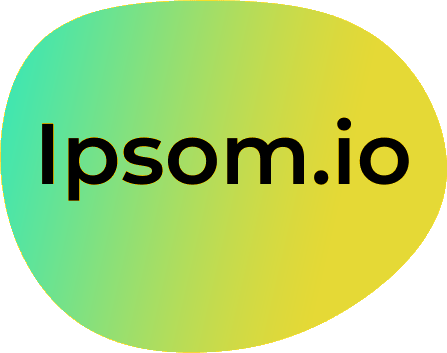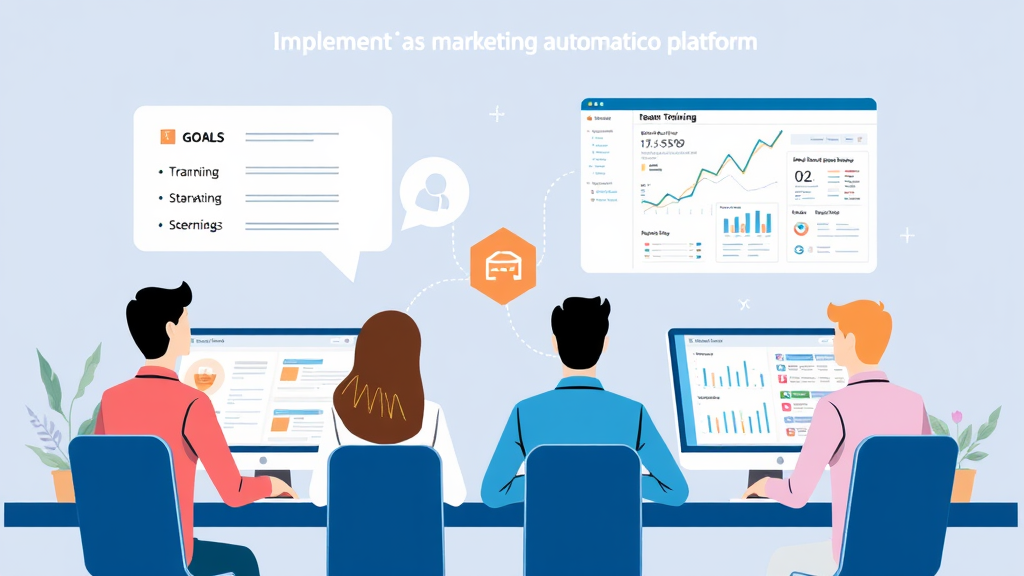In today's fast-paced digital landscape, businesses are increasingly turning to all-in-one marketing automation platforms to streamline their marketing efforts, enhance customer engagement, and drive growth. These comprehensive solutions integrate various marketing tools into a single platform, enabling businesses to manage campaigns more efficiently and effectively.
Key Findings
-
Comprehensive Integration: All-in-one marketing automation platforms consolidate multiple marketing functions—such as email marketing, social media management, CRM, and analytics—into a unified system, reducing the need for multiple disparate tools.
-
Enhanced Efficiency: By automating repetitive tasks and providing centralized control, these platforms enable marketing teams to focus on strategy and creativity, thereby improving overall productivity.
-
Scalability: Many platforms offer scalable solutions tailored to businesses of various sizes, from startups to large enterprises, ensuring that marketing automation can grow alongside the business.
-
Data-Driven Decision Making: Integrated analytics and reporting tools provide valuable insights into campaign performance, customer behavior, and ROI, facilitating informed decision-making.
-
Improved Customer Engagement: Personalization features allow businesses to deliver targeted content and communications, enhancing customer experience and fostering loyalty.
What Are All-in-One Marketing Automation Platforms and How Do They Benefit Businesses?
All-in-one marketing automation platforms integrate various marketing tools into a single system, enabling businesses to manage and automate their marketing efforts efficiently. These platforms typically encompass functionalities such as email marketing, social media management, customer relationship management (CRM), analytics, and more.
Benefits of All-in-One Marketing Automation Platforms:
-
Streamlined Workflows: By centralizing all marketing tools, these platforms reduce the need to switch between different systems, enhancing efficiency and allowing teams to focus on crafting high-quality campaigns.
-
Improved Data Integration and Insights: Consolidating marketing data provides a holistic view of customer behavior and campaign performance, enabling more informed decision-making and optimized marketing strategies.
-
Cost-Effectiveness: Utilizing a single platform for multiple marketing functions can reduce costs associated with maintaining separate tools, offering a more economical solution for businesses.
-
Enhanced Collaboration: A unified platform facilitates seamless collaboration among team members by providing a shared workspace for accessing campaign assets, tracking progress, and effective communication.
-
Scalability and Growth Potential: These platforms are designed to grow alongside a business, offering additional tools and capabilities as needed, ensuring that marketing efforts can scale effectively.
By integrating various marketing functions into a cohesive system, all-in-one marketing automation platforms enable businesses to operate more efficiently, gain deeper insights, and adapt to growth, ultimately enhancing overall marketing effectiveness.
External Sources: Learn More
Key Features to Look for in a Comprehensive Marketing Automation Solution
When evaluating an all-in-one marketing automation solution, it's essential to consider features that enhance efficiency, personalization, and data-driven decision-making. Key features to look for include:
1. Lead Management and Scoring
Effective lead management directs marketers to the most promising leads based on their interactions with your content or products. Lead scoring assigns values to leads, helping sales teams prioritize efforts and tailor communications to increase conversion rates.
2. CRM Integration
Seamless integration with Customer Relationship Management (CRM) systems ensures a unified view of customer data, facilitating personalized marketing strategies and improved customer interactions. This integration allows for synchronized data across platforms, enhancing collaboration between marketing and sales teams.
3. Multi-Channel Campaign Management
A robust marketing automation tool should support the management of campaigns across various channels, including email, social media, SMS, and web platforms. This capability ensures consistent messaging and a cohesive customer experience across all touchpoints.
4. Advanced Segmentation and Personalization
The ability to segment your audience based on behavior, demographics, or other criteria allows for tailored messaging that resonates with specific groups. Personalization engines utilize this data to customize content, product recommendations, and communications, enhancing engagement and conversion rates.
5. Analytics and Reporting
Comprehensive analytics and reporting features provide insights into campaign performance, customer engagement, and return on investment (ROI). These tools enable data-driven decision-making and continuous optimization of marketing strategies.
6. Scalability and Customization
As your business grows, your marketing automation solution should scale accordingly. Look for platforms that offer customization options to adapt to evolving marketing needs and integrate additional capabilities, such as artificial intelligence (AI) and machine learning (ML), as your business expands.
7. Compliance and Security
Ensuring that your marketing automation tool complies with data protection regulations (e.g., GDPR, HIPAA) is crucial. Features such as built-in consent management, secure data storage, and robust authentication processes help safeguard sensitive customer information.
By prioritizing these features, businesses can select a comprehensive marketing automation solution that enhances operational efficiency, personalizes customer interactions, and drives data-informed marketing decisions.
External Sources: Learn More
Transform your business with intelligent automation—get started at ipsom.io or email us at office@ipsom.io.
Top All-in-One Marketing Automation Platforms for Small and Medium Enterprises (SMEs)
Selecting the right all-in-one marketing automation platform is crucial for small and medium enterprises (SMEs) aiming to streamline their marketing efforts and enhance customer engagement. Below are some top platforms tailored to meet the diverse needs of SMEs:
1. HubSpot Marketing Hub
HubSpot offers a comprehensive suite of tools designed to assist SMEs in managing their marketing campaigns effectively.
Key Features:
- Email marketing and automation
- Landing page and form builders
- Social media management
- SEO tools and content strategy
- Advanced reporting and analytics
Why it's great for SMEs: HubSpot provides scalable plans suitable for various business sizes, coupled with an intuitive interface and extensive educational resources, making it accessible even for marketing novices.
2. ActiveCampaign
ActiveCampaign is renowned for its powerful automation capabilities and integrated CRM features.
Key Features:
- Advanced email marketing automation
- Built-in CRM with sales automation
- Machine learning-powered predictive sending
- Site and event tracking
- Robust segmentation capabilities
Why it's great for SMEs: ActiveCampaign offers sophisticated automation features at an affordable price point, making it an excellent choice for SMEs looking to leverage advanced marketing techniques.
3. Brevo (formerly Sendinblue)
Brevo has evolved into a versatile marketing automation tool suitable for SMEs.
Key Features:
- Email and SMS marketing
- Chat and shared inbox
- Landing page and signup form creation
- Facebook ads management
- Transactional email capabilities
Why it's great for SMEs: Brevo's pricing model, based on email volume rather than contact list size, can be very cost-effective for SMEs. Its user-friendly interface and diverse feature set make it a versatile choice.
4. Mailchimp
Mailchimp has expanded beyond email marketing to offer a full suite of marketing tools.
Key Features:
- Email marketing and automation
- Customer journey builder
- Website and landing page creator
- Social media management
- Built-in CRM features
Why it's great for SMEs: Mailchimp's free plan and scalable pricing make it accessible for businesses of all sizes. Its intuitive design tools and pre-built templates are particularly useful for SMEs without dedicated design resources.
5. Keap (formerly Infusionsoft)
Keap is designed specifically for small businesses, offering a blend of CRM and marketing automation.
Key Features:
- Contact management and CRM
- Email marketing and automation
- Appointment scheduling
- Invoicing and payments
- Sales pipeline management
Why it's great for SMEs: Keap's all-in-one approach, combining marketing, sales, and customer management, can be particularly beneficial for SMEs looking to streamline their operations across multiple areas.
When selecting a marketing automation platform, SMEs should consider factors such as budget, scalability, ease of use, and the specific features that align with their business goals. Many of these platforms offer free trials or tiers, allowing businesses to evaluate their suitability before making a commitment.
External Sources: Learn More
Evaluating the Cost-Effectiveness of Integrated Marketing Automation Tools
Integrated marketing automation tools consolidate various marketing functions—such as email campaigns, social media management, lead nurturing, and analytics—into a single platform. This integration aims to enhance efficiency and effectiveness in marketing operations. Evaluating the cost-effectiveness of these tools involves analyzing both the expenses incurred and the benefits realized.
Initial and Ongoing Costs
When considering integrated marketing automation tools, it's essential to account for several cost components:
-
Software Subscription Fees: These vary widely based on the platform and the scale of usage. For instance, platforms like HubSpot may start at approximately $50 per month, while more comprehensive solutions like Marketo can range from $1,000 to over $10,000 per month.
-
Implementation and Setup: Initial setup costs can include integration with existing systems and customization to meet specific business needs. These expenses can range from a few hundred to several thousand dollars, depending on the complexity of the implementation.
-
Training and Support: Ensuring that staff can effectively use the new system may require investment in training programs, which can cost from a few hundred to several thousand dollars. Ongoing support and potential customization needs should also be factored into the budget.
Return on Investment (ROI)
Despite the initial investment, integrated marketing automation tools often yield substantial returns:
-
Revenue Growth: Companies have reported an average ROI of $5.44 for every dollar spent on marketing automation within the first three years.
-
Efficiency Gains: Automation reduces manual tasks, leading to increased productivity. For example, businesses have experienced a 14.5% increase in sales productivity after implementing marketing automation.
-
Cost Savings: By streamlining processes, companies can reduce marketing overhead costs by approximately 12.2%.
Considerations for Cost-Effectiveness
To ensure the cost-effectiveness of an integrated marketing automation tool, businesses should:
-
Assess Needs and Scale: Choose a platform that aligns with the company's size and marketing requirements to avoid overpaying for unnecessary features.
-
Plan for Total Cost of Ownership: Beyond subscription fees, consider all associated costs, including implementation, training, and ongoing support.
-
Monitor Performance Metrics: Regularly track key performance indicators (KPIs) to measure the tool's impact on marketing efficiency and revenue generation.
By carefully evaluating these factors, businesses can determine the cost-effectiveness of integrated marketing automation tools and make informed decisions that align with their strategic objectives.
External Sources: Learn More
How to Successfully Implement an All-in-One Marketing Automation Platform in Your Business
Implementing an all-in-one marketing automation platform can significantly enhance your business's marketing efficiency and effectiveness. To ensure a successful implementation, consider the following steps:
1. Define Clear, Measurable Goals
Begin by identifying specific objectives you aim to achieve with marketing automation, such as increasing lead generation, improving customer retention, or boosting sales conversions. Setting clear, measurable goals provides direction and a basis for evaluating success.
2. Choose the Right Platform
Select a marketing automation platform that aligns with your business needs, considering factors like ease of use, scalability, integration capabilities, and cost. Ensure the platform can seamlessly integrate with your existing systems, such as your CRM, to facilitate data synchronization and a unified view of customer interactions.
3. Develop a Comprehensive Implementation Plan
Create a detailed roadmap outlining timelines, resource allocation, and specific milestones for the implementation process. Starting with a pilot program focusing on key processes allows you to address potential issues before a full-scale rollout.
4. Prepare and Integrate Your Data
Conduct a thorough audit of your existing customer data to ensure it is clean, up-to-date, and properly segmented. Integrating your marketing automation platform with other systems, such as your CRM and website analytics, provides a comprehensive view of your prospects and customers, enabling more personalized and targeted campaigns.
5. Train Your Team
Invest in comprehensive training for your team to ensure they understand how to use the marketing automation tools effectively. This includes not only technical training but also strategic guidance on leveraging automation to achieve business objectives.
6. Monitor and Analyze Performance Metrics
Regularly monitor key performance indicators (KPIs) to evaluate the success of your marketing automation efforts. This analysis offers valuable insights into what works and what needs adjustments, allowing for continuous optimization of your strategies.
By following these steps, you can effectively implement an all-in-one marketing automation platform that enhances your marketing efforts and drives business growth.
External Sources: Learn More
Common Challenges and Solutions in Adopting Marketing Automation Platforms
Implementing marketing automation platforms can streamline operations and enhance customer engagement. However, organizations often encounter several challenges during adoption. Below are common obstacles and their corresponding solutions:
1. Lack of Clear Objectives
Without well-defined goals, automation efforts may become unfocused and ineffective.
Solution: Establish specific, measurable, achievable, relevant, and time-bound (SMART) objectives that align with your overall marketing strategy. This clarity will guide the implementation process and help measure success.
2. Data Quality and Integration Issues
Inconsistent or poor-quality data can lead to ineffective campaigns and miscommunication.
Solution: Invest in data cleaning tools and ensure seamless integration between your marketing automation platform and existing systems, such as CRM and e-commerce tools. This approach centralizes customer data, providing a unified view and enhancing campaign effectiveness.
3. Steep Learning Curve
The complexity of marketing automation tools can overwhelm teams lacking technical expertise.
Solution: Utilize training resources offered by the platform, including tutorials and webinars. Start with basic workflows to build confidence before progressing to more complex tasks.
4. Resistance to Change
Employees may be hesitant to adopt new systems, preferring established workflows.
Solution: Foster a culture that embraces change by involving team members early in the adoption process, addressing concerns, and highlighting the benefits of automation. Providing adequate training and support can also ease the transition.
5. Balancing Automation with Personalization
Over-automation can result in impersonal communication, alienating customers.
Solution: Use automation to handle repetitive tasks while ensuring that customer interactions remain personalized. Segment your audience and tailor content to meet their specific needs and preferences.
6. Integration Complexity
Ensuring that the marketing automation platform integrates seamlessly with existing tools can be challenging.
Solution: Choose a platform with robust integration capabilities and work closely with support teams to configure integrations correctly. This ensures a unified view of customer data and streamlined processes.
7. Significant Financial Investment
The costs associated with marketing automation platforms, including licensing fees and training expenses, can be substantial.
Solution: Evaluate the expected benefits, such as increased revenue and improved efficiency, against the costs. Ensure that the chosen platform offers a return on investment that justifies the expenditure.
By proactively addressing these challenges, organizations can successfully adopt marketing automation platforms, leading to more efficient operations and enhanced customer engagement.
External Sources: Learn More
Transform your business with automation—visit ipsom.io or connect with us at office@ipsom.io.
FAQ – Frequently Asked Questions
What is the difference between all-in-one marketing automation platforms and standalone marketing tools?
All-in-one marketing automation platforms integrate multiple marketing tools—such as email marketing, CRM, social media management, and analytics—into a single system, offering a unified interface and centralized data management. This consolidation can streamline operations and reduce the complexity of managing multiple tools.
In contrast, standalone marketing tools are specialized applications focusing on specific functions like email campaigns or social media scheduling. They often provide deeper functionality in their respective areas but may require additional effort to integrate with other tools, potentially leading to data fragmentation and increased management overhead.
Choosing between the two depends on your business's specific needs, resources, and goals. All-in-one platforms may offer simplicity and cost-effectiveness for smaller teams, while standalone tools can provide specialized capabilities for businesses with more complex requirements.
How do all-in-one marketing automation platforms enhance customer relationship management (CRM)?
All-in-one marketing automation platforms enhance Customer Relationship Management (CRM) by integrating marketing and sales functions, leading to several key benefits:
-
Personalized Communication: By combining CRM data with marketing automation, businesses can create tailored marketing campaigns based on individual customer preferences and behaviors, improving engagement and building stronger relationships.
-
Improved Lead Management: Integration allows for seamless transfer of lead data between sales and marketing teams, automating lead scoring and nurturing processes. This ensures leads are properly prioritized and followed up on, increasing conversion rates.
-
Streamlined Customer Journey: By mapping out and optimizing the entire customer journey, businesses can guide prospects through the sales funnel more effectively, providing a seamless experience across all touchpoints.
-
Enhanced Data-Driven Decision Making: Integrating CRM with marketing automation provides valuable insights into customer behavior and campaign performance, enabling businesses to track ROI, measure effectiveness, and optimize strategies based on real-time feedback.
-
Increased Sales and Marketing Alignment: A unified platform fosters better collaboration between sales and marketing teams by providing a shared view of customer data, ensuring consistent messaging and coordinated efforts to close deals faster.
By leveraging these integrated platforms, businesses can enhance their CRM efforts, leading to improved customer satisfaction and increased revenue.
Can small businesses afford and benefit from comprehensive marketing automation solutions?
Yes, small businesses can afford and benefit from comprehensive marketing automation solutions. Many platforms offer affordable plans tailored for small enterprises, starting as low as $6.40 per month.
Benefits include:
-
Time and Resource Savings: Automating repetitive tasks allows businesses to focus on strategic activities.
-
Improved Lead Generation and Nurturing: Automated processes help capture, score, and nurture leads, increasing conversion rates.
-
Enhanced Customer Engagement: Personalized and timely interactions build stronger customer relationships.
-
Cost-Effective Marketing Solutions: Streamlining operations reduces manual errors and operational costs.
-
Data-Driven Decision Making: Analytics provide insights to optimize marketing strategies.
By leveraging these tools, small businesses can enhance efficiency, improve customer relationships, and drive growth.
What are the potential drawbacks of using an all-in-one marketing automation platform?
All-in-one marketing automation platforms offer numerous benefits, but they also come with potential drawbacks:
-
Jack of All Trades, Master of None: These platforms may provide a broad range of tools but might not excel in any specific area, potentially leading to subpar performance in certain marketing functions.
-
Complexity and Learning Curve: The extensive features can be overwhelming, requiring significant time and training to master, which may negate efficiency gains.
-
Limited Customization: Some platforms offer restricted customization options, making it challenging to tailor automation workflows to unique business processes.
-
Overdependence on a Single Platform: Relying solely on one platform can be risky; technical issues or downtime can disrupt the entire marketing operation, and switching platforms later can be complex.
-
High Initial Costs: Implementing these platforms can be expensive, especially for small businesses, due to software licensing, training, and integration expenses.
-
Risk of Over-Automation: Excessive automation can lead to impersonal interactions, potentially alienating customers who seek authentic engagement.
-
Data Privacy and Compliance Issues: Managing large amounts of customer data requires adherence to data privacy regulations; non-compliance can result in fines and reputational damage.
-
Integration Challenges: Ensuring seamless integration with existing systems like CRM tools can be complex, leading to data silos and inefficiencies if not properly managed.
Careful evaluation of these factors is essential when considering an all-in-one marketing automation platform to ensure it aligns with your business needs and capabilities.
How do I choose the right marketing automation platform for my business needs?
Selecting the right marketing automation platform involves several key considerations:
-
Define Your Business Goals: Identify what you aim to achieve with automation, such as enhancing lead generation, improving customer engagement, or streamlining marketing processes.
-
Assess Essential Features: Determine the must-have features that align with your objectives, like email marketing automation, lead scoring, CRM integration, and analytics.
-
Evaluate Integration Capabilities: Ensure the platform integrates seamlessly with your existing tools, such as CRM systems, analytics platforms, and social media channels, to maintain efficient workflows.
-
Consider User Experience: Opt for a platform with an intuitive interface to facilitate adoption and minimize training time for your team.
-
Review Scalability and Flexibility: Choose a solution that can grow with your business and adapt to evolving marketing strategies and channels.
-
Analyze Pricing Structure: Understand the pricing model, including any additional fees for extra features or support, to ensure it fits within your budget.
-
Investigate Customer Support and Resources: Look for platforms that offer comprehensive support options and educational materials to assist with onboarding and troubleshooting.
-
Test Through Demos and Free Trials: Utilize available trials to assess the platform's suitability for your needs before making a commitment.
By carefully evaluating these factors, you can select a marketing automation platform that aligns with your business requirements and supports your growth objectives.




